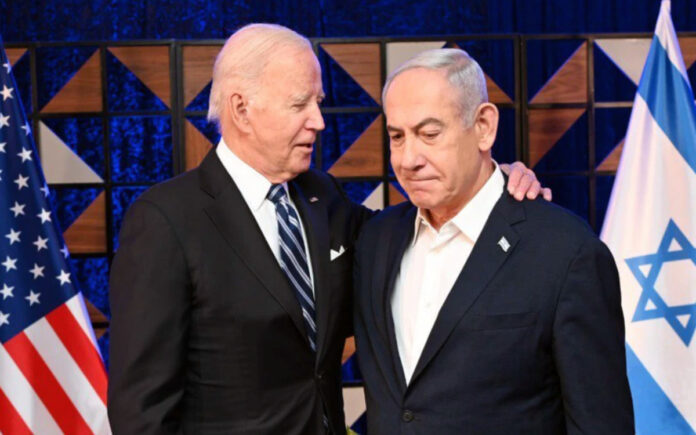Washington/Tel Aviv: Amid the heightened conflict between Israel and Iran, President Joe Biden’s administration urged Israel to pause after the Iranian missile strikes on Oct. 1, asserting that Israel had the time to strategize a carefully measured response. U.S. officials feared a swift retaliation from Israel could ignite a larger Middle East conflict just weeks ahead of the U.S. presidential election.
Guiding Israel’s Retaliation
U.S. officials—both current and former—explain that Washington’s influence on Israel’s calculated airstrikes, conducted nearly a month later, resulted in a targeted military response that avoided sensitive Iranian infrastructure, including nuclear and energy facilities. Jonathan Panikoff, a former senior intelligence official, noted, “U.S. pressure was critically important.” Without this, Israeli strikes might have hit nuclear or energy sites.
Prime Minister Benjamin Netanyahu denied U.S. influence over Israel’s decision-making, stating that Israel’s response aligned solely with its national interests. Yet, in the immediate aftermath of the Iranian missile strikes, U.S. officials conveyed their commitment to ensure Iran faced consequences while maintaining controlled responses.
Backdoor Diplomacy and Strengthening Israel’s Defenses
Defense Secretary Lloyd Austin engaged in extensive discussions with his Israeli counterpart, Yoav Gallant, stressing the need for a proportional response. Secretary of State Antony Blinken, meanwhile, reassured European and Arab allies of the measured approach being taken.
One tactic involved economic pressures; the U.S. imposed further sanctions on Iran’s oil sector, aiming to diminish Iran’s revenues without direct military strikes. Additionally, the United States deployed the THAAD defense system to bolster Israel’s air defenses, sending a message of both deterrence and support.
Also Read | Egypt Seeks Two-Day Truce in Gaza, Proposing Hostage and Prisoner Swap
Reinforcing U.S.-Israel Cooperation Amid Rising Regional Tensions
Although discussions included various potential targets, Washington discouraged strikes on Iranian nuclear facilities. The U.S. assured Israel that, should Iran decide to advance its nuclear program, the U.S. would back more decisive measures in the future. In an apparent show of strength, the U.S. launched a separate strike against Iran-aligned Houthi rebels in Yemen using advanced stealth bombers.
Israel’s restrained response, focusing only on military targets, has opened diplomatic opportunities, according to Blinken. The Biden administration aimed to leverage this response to address long-standing tensions in the region, particularly as conflicts involving Iran-aligned groups continue to escalate.
Also Read | North Korea Threatens “Merciless Offensive” Over Alleged Drone Incursions
Political Ramifications in the United States
Biden’s approach has drawn criticism from some Republicans, including Congressman Mike Turner, who believes the administration’s restraint hampers Israel’s ability to counter Iran’s threats effectively. Aaron David Miller of the Carnegie Endowment observed that, if Republican candidate Donald Trump wins the upcoming election, Israel might adopt an even more assertive stance, having already demonstrated its capacity to weaken Iran’s defenses.
With no indication of further escalation from either side, U.S. officials hope the restraint displayed can break the cycle of counter-attacks and promote stability. Yet, the Biden administration remains ready to respond if Iran reignites hostilities.



